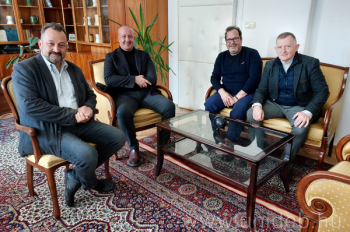
For students, researchers, and industry professionals dedicated to agricultural science, the University of Debrecen places a distinct emphasis on Mediterranean agriculture and its role in sustainable development. The university’s collaboration with the International Centre for Advanced Mediterranean Agronomic Studies (CIHEAM) illustrates a concrete approach to global challenges such as water scarcity, climate change, and food security. Below you’ll find a detailed overview of how these partnerships shape educational programs, research initiatives, and career opportunities.
How Mediterranean Agriculture Drives Sustainable Development
The Mediterranean basin is renowned for its unique agroecological systems, characterized by semi‑arid climates, diverse soils, and traditional farming practices that balance productivity with ecological stewardship. At the University of Debrecen, these systems are studied through a student‑centred curriculum that integrates:
- Long‑term field experiments on sandy and low‑fertility soils spanning over 90 years.
- Water‑efficient irrigation techniques tailored to Mediterranean conditions.
- Research on drought‑resistant crop varieties and soil‑health management.
By exposing learners to these experimental results, the university offers a practical training ground for those who seek to implement resilient agricultural practices in similar climate zones worldwide.
CIHEAM Partnership: Expanding Educational Horizons
CIHEAM’s Bari centre, founded in 1962, concentrates on postgraduate education, applied research, and development cooperation. Its partnership with the Faculty of Agriculture, Food Sciences, and Environmental Management (MÉK) creates a transnational learning pathway.
- Dual‑degree programs: Students can earn both a Hungarian and an Italian academic credential, enhancing career mobility.
- Research exchanges: Visiting scholars and doctoral candidates participate in joint projects on topics such as integrated coastal management and aquaculture, which are increasingly relevant to global food systems.
- Workshops and summer schools: These events provide hands‑on training in sustainable farming practices and climate adaptation.
Research Capabilities in Drought and Water Management
The university’s long‑standing focus on soil and water conservation translates into actionable insights for drought‑prone regions. Scientists at the Agricultural Science Institute (AKIT) collaborate with CIHEAM to develop nearby‑area water‑management strategies that:
- Reduce irrigation demand through mulching and deficit irrigation.
- Integrate rainwater harvesting systems into farm design.
- Utilize data‑driven decision support tools that predict weather patterns and adjust crop schedules accordingly.
Career Pathways for Students of Mediterranean Agriculture
Graduates from the university’s agricultural program find placement opportunities across a diverse portfolio of sectors, including:
- Governmental advisory councils focused on rural development and climate policy.
- International NGOs working on food security and poverty alleviation.
- Agribusiness firms specializing in organic and regenerative products.
- Research institutions conducting socio‑economic impact studies on Mediterranean farming communities.
Participation in CIHEAM‑coordinated project teams also grants students exposure to multinational funding mechanisms—an invaluable asset for future research leaders.
Concrete Steps Forward: How to Get Involved
Whether you are a prospective student or a professional seeking collaboration, the following actions can help you integrate into the University of Debrecen’s Mediterranean agricultural ecosystem:
- Submit your application today for the MSc in Sustainable Agriculture.
- Schedule a free consultation to learn more about joint research opportunities.
- Register for the upcoming Mediterranean Agronomy Summer School.
- Have questions? Write to us to receive detailed program information.
- Explore our related articles for further reading on sustainable food systems.
Conclusion: A Global Model for Sustainable Agriculture
The University of Debrecen represents a growing network of academic institutions that harness Mediterranean agricultural knowledge to address worldwide sustainability challenges. Through robust collaboration with CIHEAM, the university demonstrates how interdisciplinary research, targeted educational pathways, and practical field experience can create a resilient future for agriculture.

